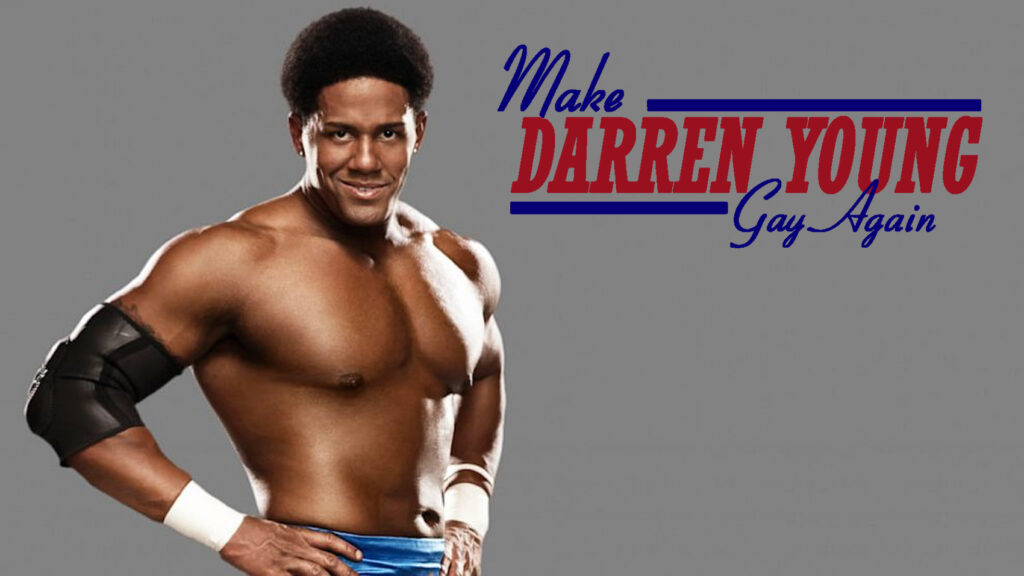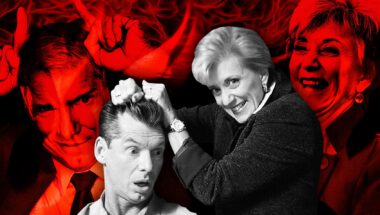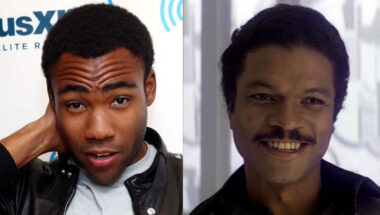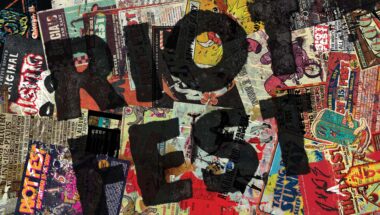Last week, WWE announced that it had “come to terms on the release” of former Tag Team Champion Darren Young. The news was less shocking than the surprise release of fan-favorite Emma, announced the same day. Young, whose last televised appearance was on January 18th’s WWE Main Event — a match that was called off when Young broke his elbow on the ring apron — hadn’t appeared much on WWE television the year before. On a roster loaded with talent, most of whom are fighting for as much screen time as possible, a wrestler like Young can have his number called at any moment.
However, what’s most significant about Darren Young’s release is that he’s the first wrestler under contract with WWE to come out as gay.
Wrestling doesn’t enjoy a perception as a progressive enterprise. It’s an industry in which a figure as important to its history as its first Intercontinental Champion and inventor of the Royal Rumble match, Pat Patterson, was publicly closeted until a it was used as a marketing reveal for a reality show featuring him and other WWE legends, on the WWE’s own TV network. The fact that nothing terrible has visited Darren Young since his secret identity, Fred Rosser III, casually outed himself to TMZ while waiting at a baggage claim in 2013 is one of the WWE’s more pleasant surprises this decade.
WWE’s Chief Brand Officer Stephanie McMahon made a promise early last August to bring the company into the 21st century in terms of queer representation. McMahon spoke last year at an awards show for Beyond Sport United, an organization that “promotes, supports and celebrates the use of sport to address social issues in communities around the world,” when she promised that the globally recognized leader in promoting professional wrestling was ready to integrate LGBT characters. So far that, promise remains unfulfilled.
Darren Young’s coming out was, for people of a progressive mindset, a feel-good moment. He even appeared on Ellen. Despite the positive press, WWE still lacks an openly gay character. Queerness has long been part of wrestling’s DNA, (Gorgeous George, Adrian Adonis, etc) but never has the character clearly stated their sexuality.
If WWE was serious about integrating LGBT characters into their storylines, why didn’t they try doing so with Young, the roster’s one out, gay competitor? At the time of McMahon’s speech, Young was stuck with a Trump-inspired “Make Darren Young Great Again” gimmick, taking life advice from former champion Bob Backlund, who has been WWE impresario Vince McMahon’s favorite on-again, off-again crazy television uncle since his 1993 heel turn. The idea was an awful one, even before the results from election night were in, and the fact that the character wasn’t getting made over was obvious from the start.
Young’s firing casts doubt McMahon’s claim that the company was ready for LGBT characters. Since this past August 8th, Young has appeared on WWE television 17 times, five of which were on Raw in matches that usually didn’t go longer than three minutes. After gaining something of a cult following in his Prime Time Players tag team partnership with Titus O’Neil, he was relegated to WWE’s poisonous lower card shows, an endless grind of meaningless matches that play to half-empty arenas, with the crowd noise added in later.
It was a gimmick, though, and WWE sticks with those for long after their expiration date. But in not reading the signs early and neither embellishing the idea of “Bob Backlund, Life Coach” nor calling an audible and abandoning the “Make Darren Young Great Again” campaign for something else (which is hardly unprecedented in recent WWE history), Young was essentially doomed to obscurity on the B-team — all the while knowing that one of his bosses claimed to see a future for LGBT characters.
And the fact is, Young is not an LGBT character. Rosser’s a gay man, and having one gay man on television does not cover all four letters of the acronym, no matter how much marginally progressive, publically traded companies like World Wrestling Entertainment might wish it would.
Stephanie McMahon still hasn’t explained how she saw potential LGBT characters integrating into the usual ebb and flow of a WWE broadcast, or even whether it would be actual LGBT people playing them. How do you have a wrestler who isn’t gay, lesbian, or bisexual work through the complex emotional tapestry that those relationships imply? How do you handle the question of transgender wrestlers? Is it even possible within WWE’s framework?
Looking through the company’s history, from Hulkamania to now, suggests that WWE is the last entertainment company in America that should consciously tackle the task of building queer characters into a space where none exist. From Adrian Adonis’ feminine side in the ’80s to Goldust, from the homophobic locker room jocularity that made D-Generation X and The Rock two of the hottest acts of the Attitude Era to the ridiculous saga of Billy Gunn and Chuck Palumbo’s fake romance — it’s just imagine even the most well-intentioned character working to the effect the company desires.
Bringing in LGBT characters will be a crucial first step towards repairing the effects of three decades of open homophobia. It’ll also likely benefit the company image itself. The WWE’s first openly gay character, when and if he, she, or they debut, will be just the right amount of groundbreaking that click-happy media partners like ESPN and Sports Illustrated crave.
But what about Darren Young? To put it in perspective, WWE is a company so forceful in curating its public image that it’s currently engaged in whitewashing The Ultimate Warrior’s legacy of homophobia, misogyny, and racism so that his image might serve as a sigil for Susan G. Komen for the Cure. For King Shit on Wrestling Mountain to have missed this — especially given Young’s 10 month absence from television — is evidence either of Stephanie McMahon’s disingenuousness or the incompetence of the writing team that she once led. Either way, it proves that WWE isn’t ready to follow through on her promises.
Whether or not Darren Young could have been the breakthrough queer character the company wanted is ultimately irrelevant. They never tried, and their landscape is poorer for it.




